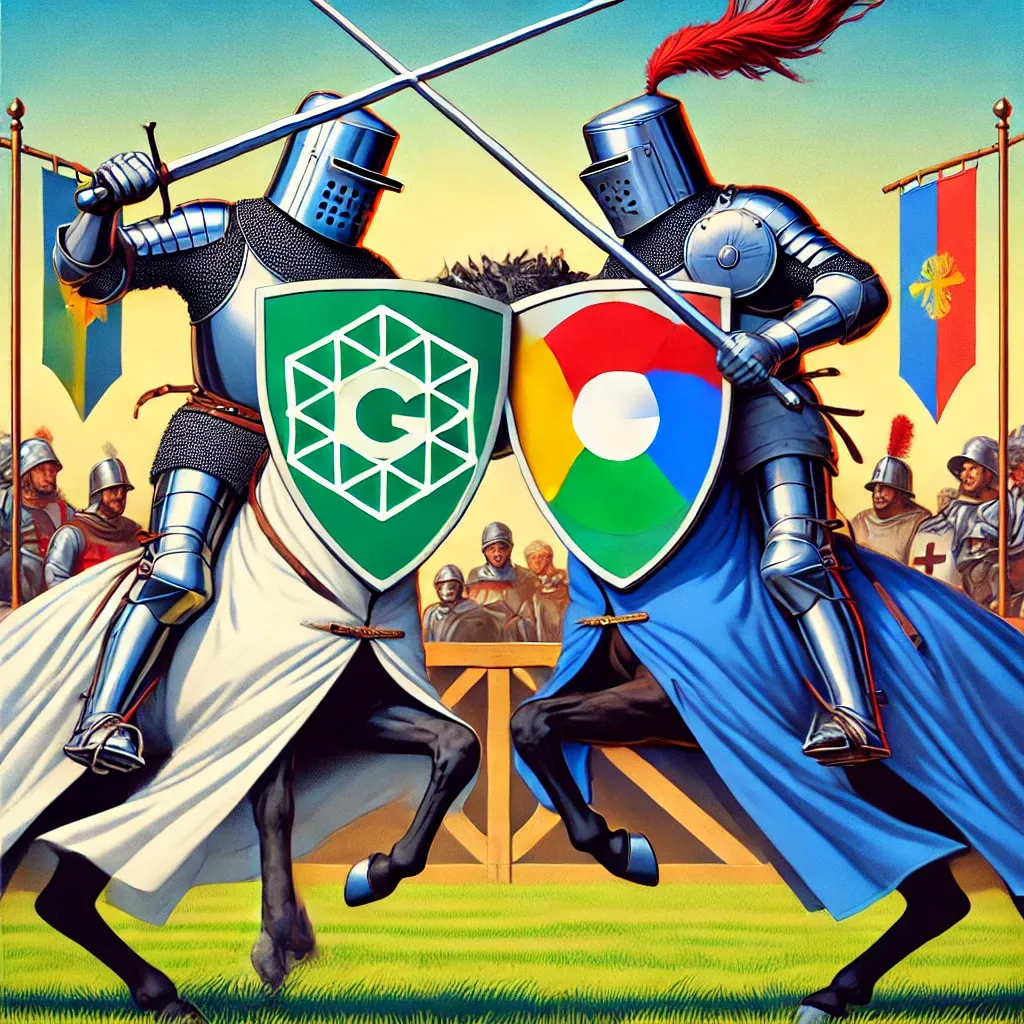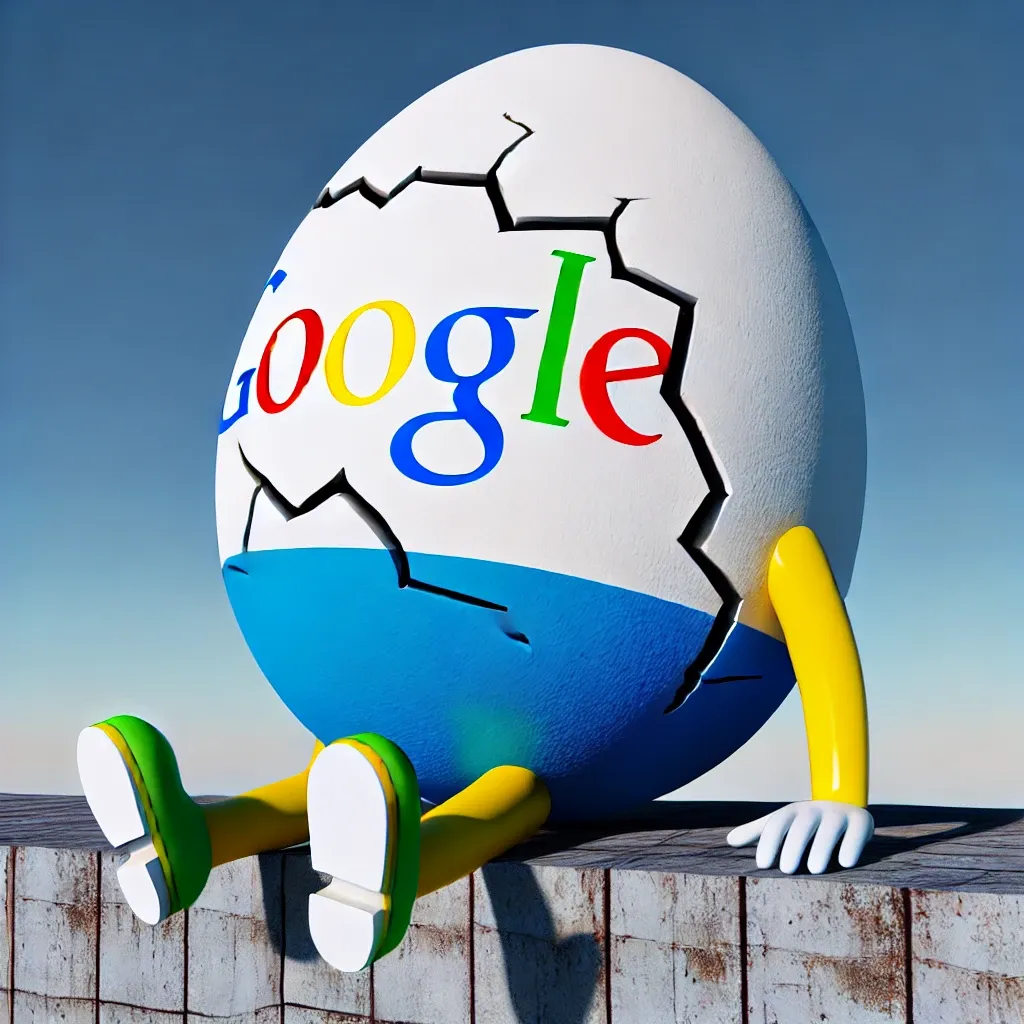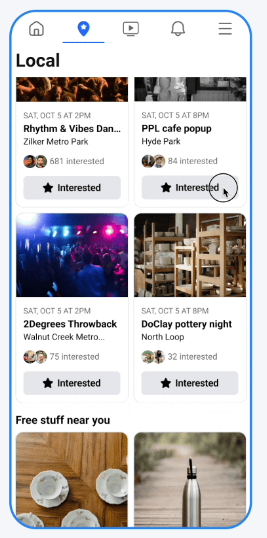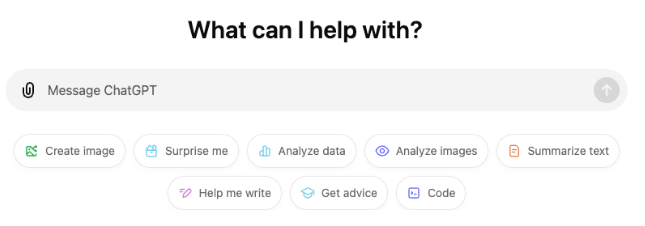Breaking Up Google, Facebook Local Tab, SearchGPT Ads

Breaking Up Google
In its filing in the remedies phase of Google's antitrust trial, the US Department of Justice (DOJ) confirmed it was considering asking the court to break up Google: "Plaintiffs are considering structural remedies that would prevent Google from using products such as Chrome, Play, and Android to advantage Google search and Google search-related products and features—including emerging search access points and features, such as artificial intelligence—over rivals or new entrants." However, that's not its first line of attack. The DOJ spoke about a wide range of remedies to punish Google and restrain its market dominance. These include the end of default search agreements (as expected), requiring Google to allow sites to opt out of AI training while remaining in the index, more transparency in Google search ads, licensing/syndication of Google’s ad feed, forced data sharing with competitors, among several others. (Forced data sharing might truly boost search rivals.) However, the filing is more a preview of the DOJ's thinking rather than a specific set of remedies. It will file an updated proposed final judgment, with more concrete recommendations, in November.

Our take:
- The DOJ is seeking to end Google's control over distribution ("gatekeeping") and "also ensuring Google cannot control the distribution of tomorrow."
- Google formally responded that doing what the DOJ wants will hurt innovation, businesses and consumers. It will appeal the decision so nothing will probably change for now.
- Google seeks to frame potential regulation/punishments as harmful to society, not just itself. Google is suggesting, by implication, that it's a public utility.
Facebook Takes Another Run at Local
Facebook has tried (repeatedly) and failed in Local. Marketplace, which is riddled with spam, is its probably most successful effort. Buying Waze might have truly made it a viable local search competitor but that's old news. Now the company is having another go. At an Austin event last week, Facebook announced a new Local tab that "pulls together the best local content from across Facebook – from places like Marketplace, Groups and Events – into a single tab called Local." The company says the Local tab is currently testing in a number of US cities: Austin, New York City, Los Angeles, Washington D.C., Chicago, Charlotte, Dallas, Houston, San Francisco and Phoenix. We haven't seen it live yet and so can't comment on the experience. However, if done well, it could succeed. Local events will be personalized "based on your interests" (and all your data). There's also going to be a "swipeable section in Feed that surfaces the best content across Facebook," including Local. But because of Facebook's track record we'll have to wait and see.

Our take:
- It would be great if Facebook succeeds. This is more like TikTok than the Local Pack. We'll see if there's a search angle eventually (guessing yes).
- Partly this is a bid to appeal to the "TikTok generation," who also heavily use Instagram for local discovery.
- You can bet that this would quickly become a targeted advertising channel. Social, and Facebook specifically, is already the #1 SMB marketing method.
SearchGPT Ads Coming?
SearchGPT will reportedly be integrated into ChatGPT by the end of 2024. Speaking virtually to a conference in Europe, OpenAI's head of media partnerships, Varun Shetty, said OpenAI intended to inegrate SearchGPT into ChatGPT "by the end of the year." The integration, which was previously announced, is not news. But the timing is. Very interestingly, Shetty also told the conference that the company did not currently intend to share ad revenue with publishers. Before this, there had been no public hint, let alone announcement, about monetizing SearchGPT with ads. OpenAI CEO Sam Altman doesn't like the idea of ads in search results. But OpenAI's massive burn rate may force the company to reconsider. Perplexity has embraced a search ad model, with a twist, also out of necessity. Perplexity Ads will reportedly launch very soon. Meanwhile, OpenAI has been inking content licensing deals with numerous publishers including Condé Nast, Time, News Corp, Vox, Atlantic, Dotdash Meredith, AP, Axel Springer, Hearst and others. According to OpenAI's Shetty, there are only 10K users of SearchGPT today. And while it's not likely to have an immediate impact on Google, over the long term it could reduce Google reliance and the frequency of Google usage.

Our take:
- ChatGPT now has more than 200 million WAUs according to the company. That's double one year ago.
- While there's missing context around Shetty's remarks, I suspect advertising is being actively discussed within OpenAI. How could it not be?
- Survey data argue heavy AI users tend to use Google and Bing less.
Recent Analysis
- Dr. Fraudster Still Deceiving Surgery Patients on Google, by Mike Blumenthal.
- Near Memo episode 177: Places sites in US? Allure’s ongoing Google review fraud scandal, FTC targets Rytr for fake review generation.
- ICYMI: Hotels Part II: Search Marketing Implications for European Hotel Suppliers, by David Mihm.
Short Takes
- Google's new Quick View: content without a click.
- LSAs must be attached to GBPs and the data must match.
- New Google SERP local carousel feature: Nearby Offers and Events.
- Google appears to remove insurance field from GBP in healthcare.
- Content for SEO: where things stand (and best practices).
- Risks and rewards of "guest posting" for linkbuilding and SEO.
- Google expands Store Ratings to more countries.
- Survey: 87% of US teens own an iPhone.
- Google's Pixel phones are surveillance devices for the company.
- YouTube playing hide the button with "skip ads."
Listen to our latest podcast.

How can we make this better? Email us with suggestions and recommendations.

